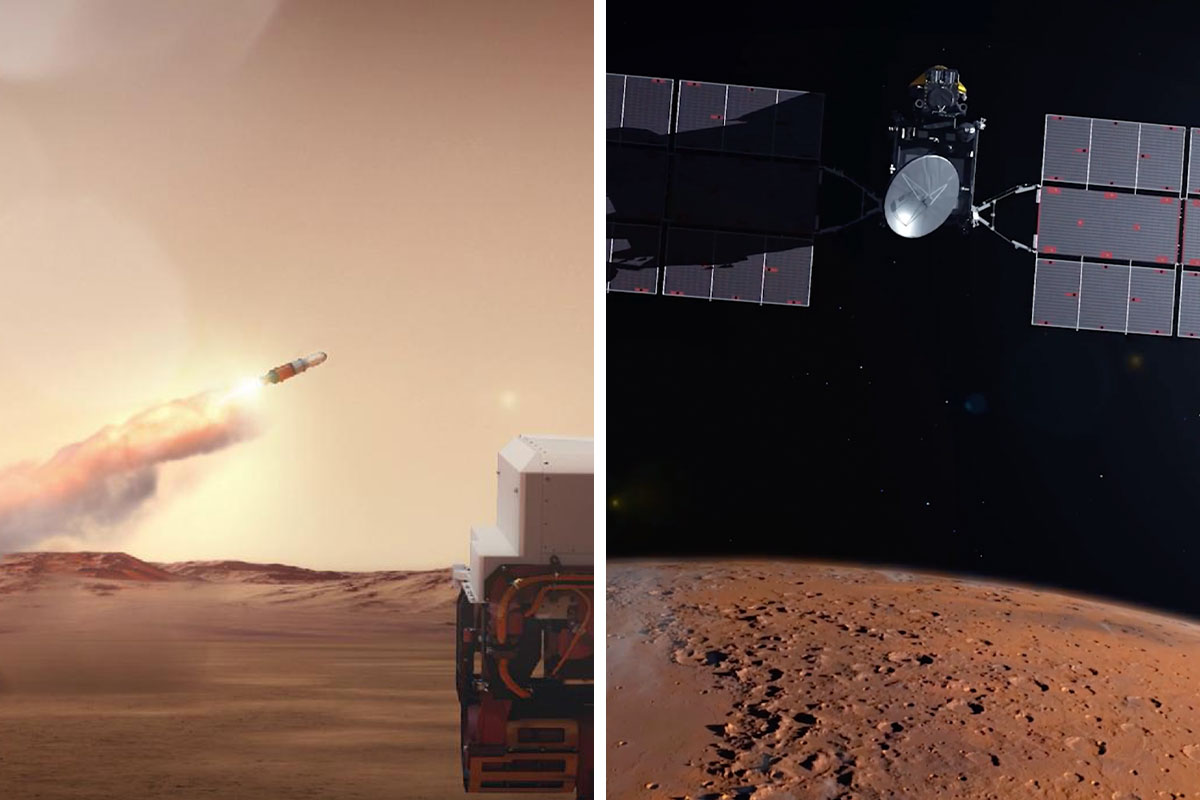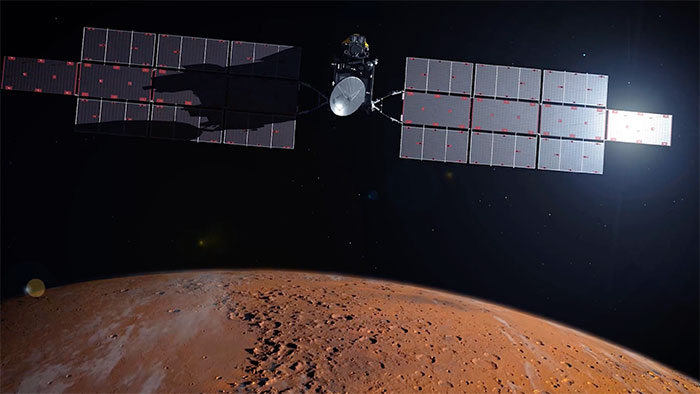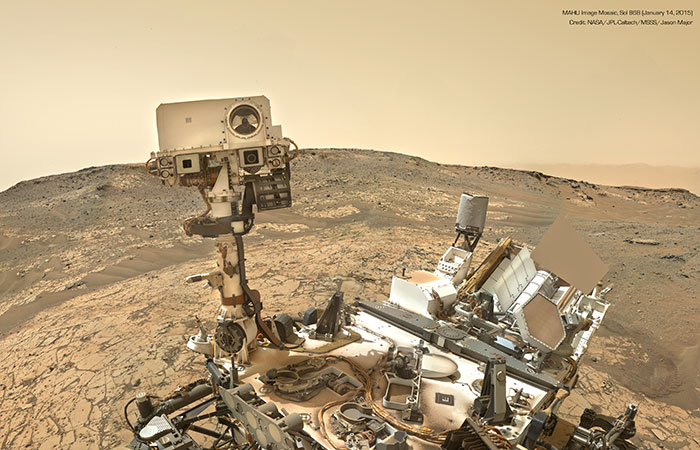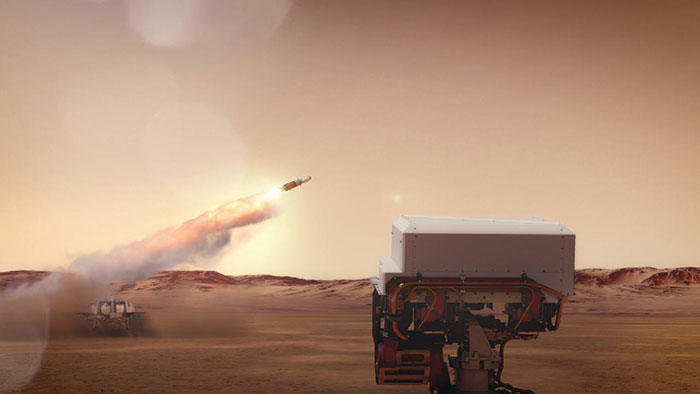
NASA Announces It’s Looking To Bring 30 Samples Collected On Mars To Earth Before 2040
This article has been updated
In an update concerning its Mars Sample Return (MSR) program, NASA announced this Monday (April 15) that it’s working on an updated version of the project to return over 30 valuable samples from Mars to Earth in less than 20 years.
NASA Administrator Bill Nelson said that the agency is exploring alternative ways to retrieve the science samples earlier than anticipated and at a lower cost.
The Mars Sample Return program aims to gather samples of Martian rock and soil to be collected by another mission and returned to Earth.
The initial funds for the project, 11 billion dollars, are “too expensive,” and not returning samples until 2040 is “unacceptably too long,” Nelson said of the initial plan. By then, the administrator speculates that astronauts could already be exploring the Red Planet.
Consequently, Nelson said that he has asked his team to develop an alternative plan that will help them achieve their goals more quickly and cost-effectively. The confirmation of the revised plan is expected by this fall.
“We are trying to figure out a way to make this go forward without hurting other NASA programs, such as Dragonfly,” Nelson added.
NASA shared that it’s currently devising a plan to return over 30 samples collected on Mars to Earth before 2040

Image credits: NASA/ESA/JPL-Caltech/GSFC
NASA’s website refers to MSR as “a major long-term goal of international planetary exploration.” The agency’s Perseverance rover is part of this quest.
The return of the samples collected by Perseverance will “help scientists understand the geological history of Mars, the evolution of its climate, and prepare for future human explorers.”
Additionally, the return of the science samples will help the agency “search for signs of ancient life.”
The announcement comes as a response to a September 2023 report from the Mars Sample Return Independent Review Board. The report indicated that the program had “unrealistic budget and schedule expectations,” an “unwieldy structure,” and was “not arranged to be led effectively.”
Moreover, it notes that “technical issues, risks, and performance-to-date indicate a near zero probability” of all aspects of the mission meeting the 2027/2028 deadlines.
The Mars Sample Return program aims to gather samples of Martian rock and soil to be collected by another mission and returned to Earth
Image credits: NASA/JPL-Caltech/MSSS/Jason Major
The current plan for MSR includes an orbiter launching in 2027, a lander launching in 2028, and samples from the Red Planet coming to Earth in 2033, as indicated on its website.
Following the report’s publication, the U.S. House and Senate Appropriations Committees recommended a budget that included a cut of $454,080,000 to NASA’s 2024 budget, specifically from the Mars Sample Return mission, as per ScienceAlert.
NASA has subsequently reduced spending on the ambitious mission and laid off approximately 530 workers and contractors from the Jet Propulsion Laboratory, which is leading the mission.
“Independent review boards like the one we commissioned for Mars Sample Return help review whether we’re on the right track to meet our mission goals within the appropriate budget,” Sandra Connelly, NASA’s deputy associate administrator for science, said in a statement last year.
“We thank the board for its work, and now our job is to assess the report and address if there are elements of the program that need to change.”
The collected samples could shed light on life on the Red Planet
Image credits: NASA/ESA/JPL-Caltech/GSFC/MSFC
Image credits: NASA Jet Propulsion Laboratory
The Perseverance rover, which landed on the Red Planet on February 18, 2021, is currently collecting samples in Mars’ Jezero Crater.
A sample collected on March 11, 2024, could hold vital clues in the search for evidence of ancient microbial life, according to Ken Farley, project scientist for Perseverance at Caltech in Pasadena, California.
“To put it simply, this is the kind of rock we had hoped to find when we decided to investigate Jezero Crater,” Farley explained.
“Nearly all the minerals in the rock we just sampled were made in water; on Earth, water-deposited minerals are often good at trapping and preserving ancient organic material and biosignatures.
“The rock can even tell us about Mars’ climate conditions that were present when it was formed.”
People were eagerly awaiting the announcement
We have all seen too many movies about bringing things from another environment into our own, please don't do it.
To state the obvious: the cost of that could have pulled a lot of people out of poverty, housed, clothed, fed and educated them and kept them healthy. Sad.
We have all seen too many movies about bringing things from another environment into our own, please don't do it.
To state the obvious: the cost of that could have pulled a lot of people out of poverty, housed, clothed, fed and educated them and kept them healthy. Sad.












36
2